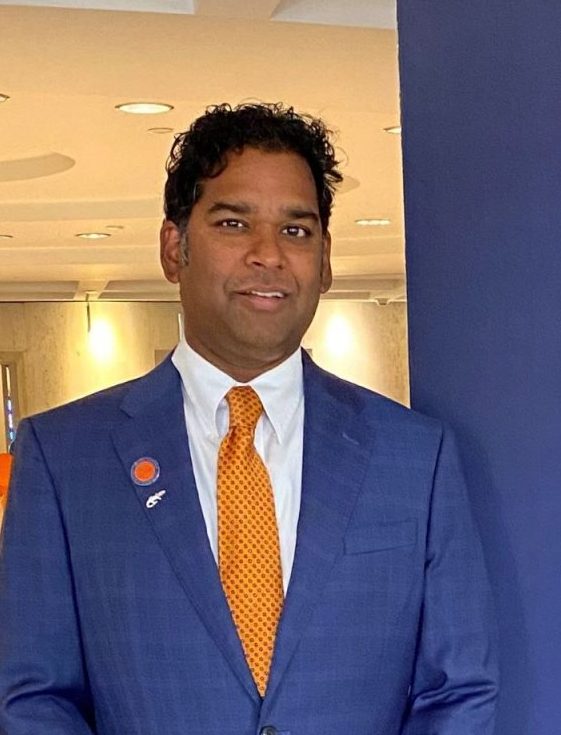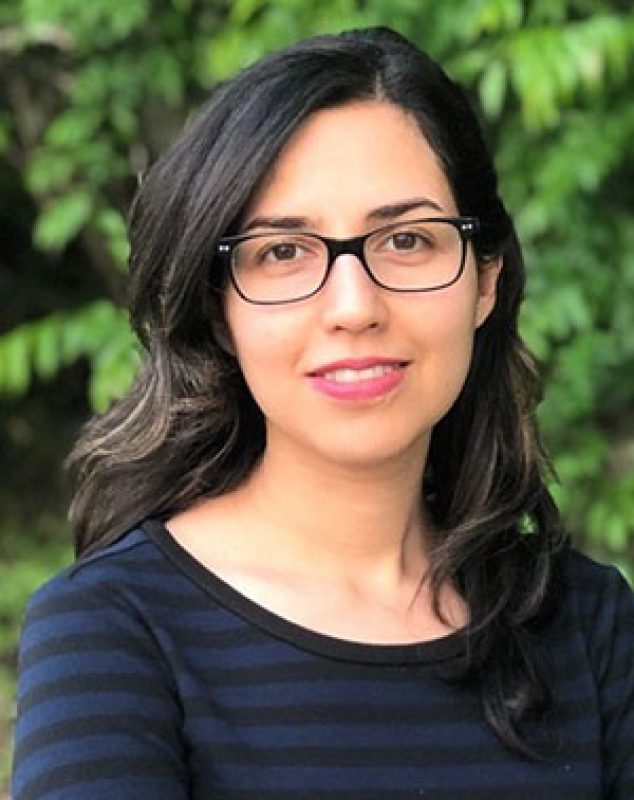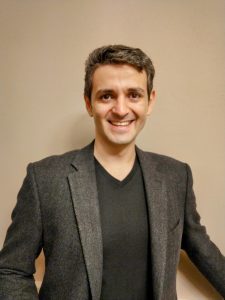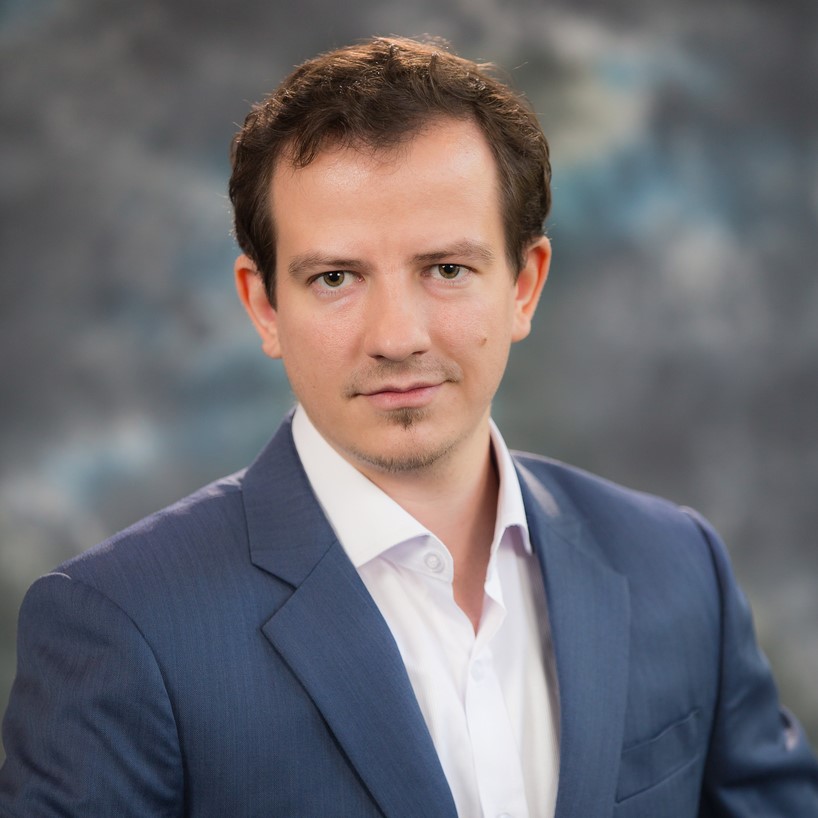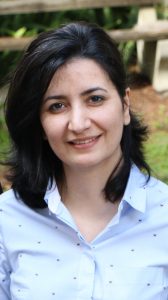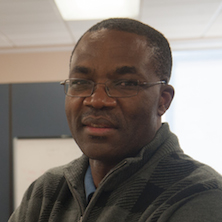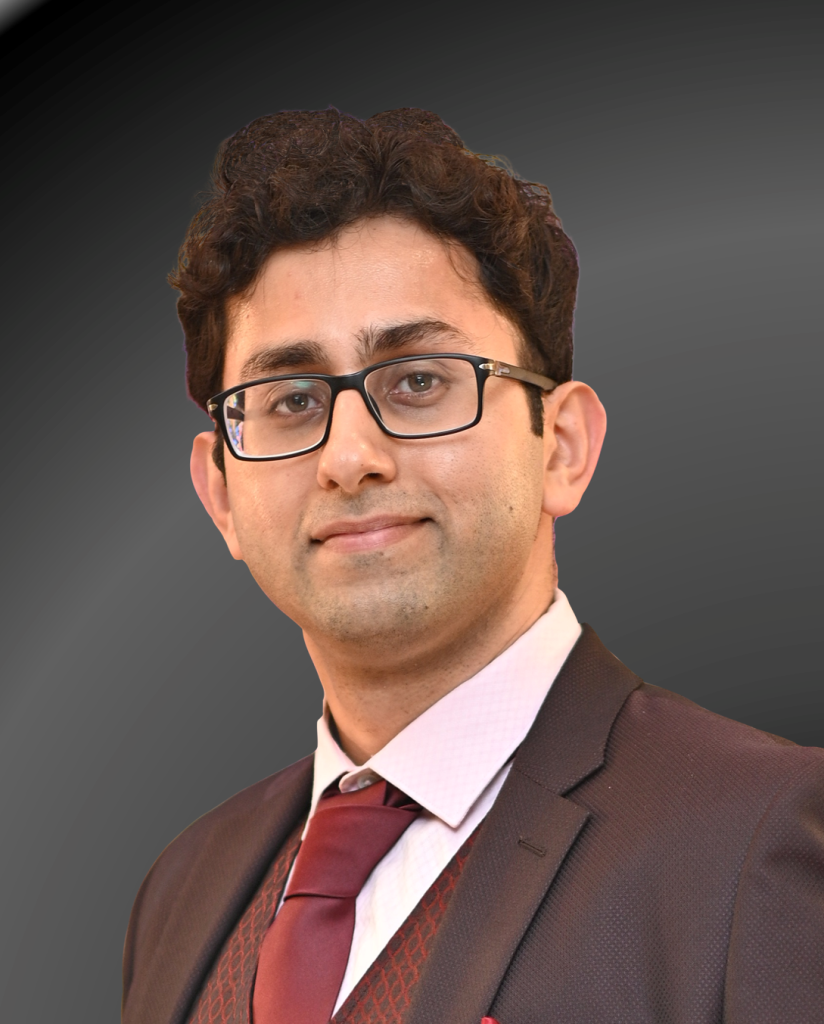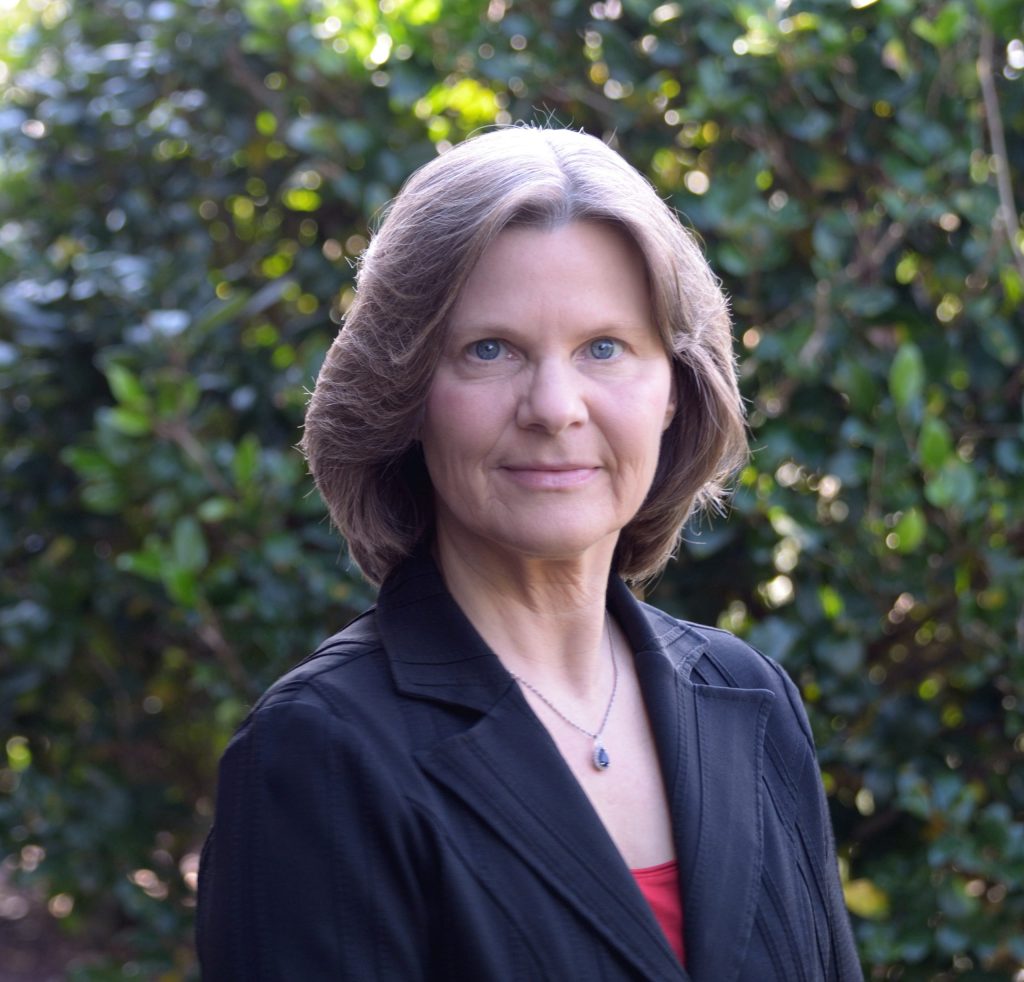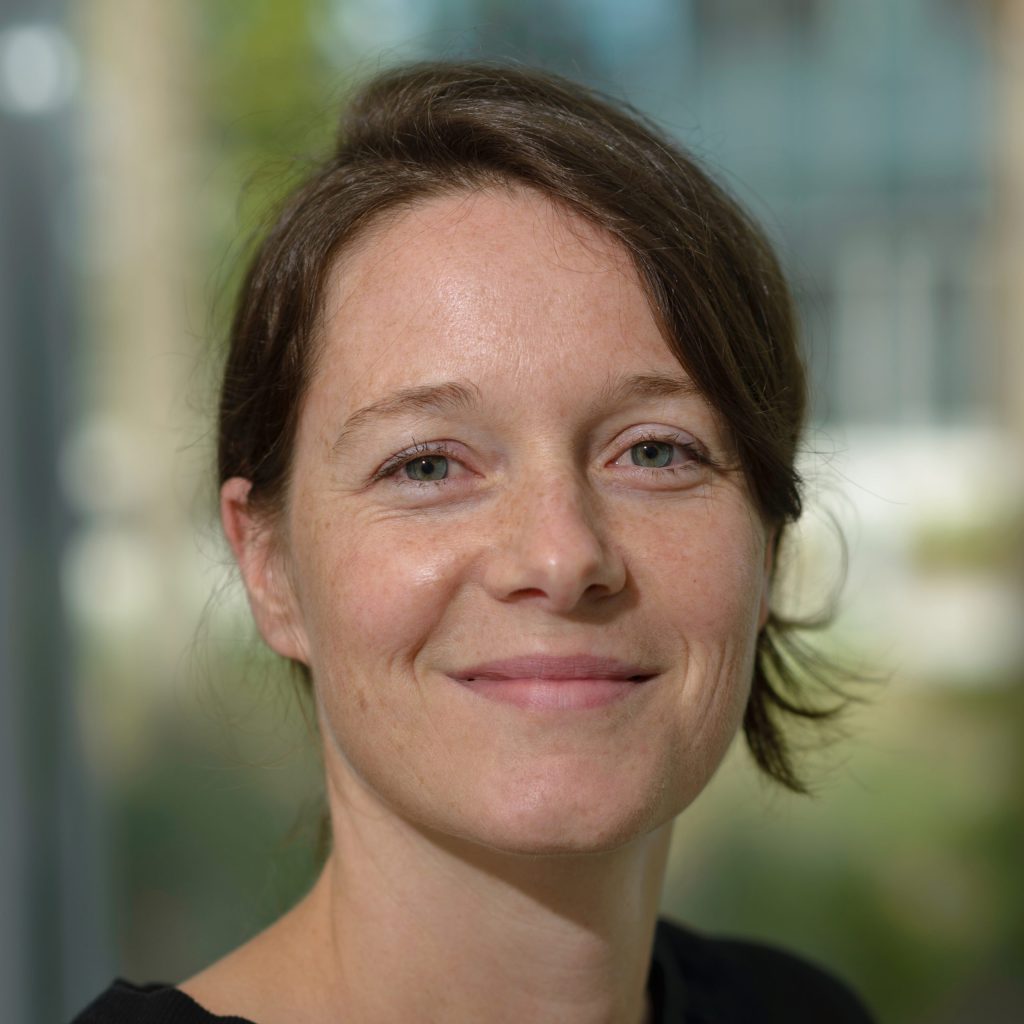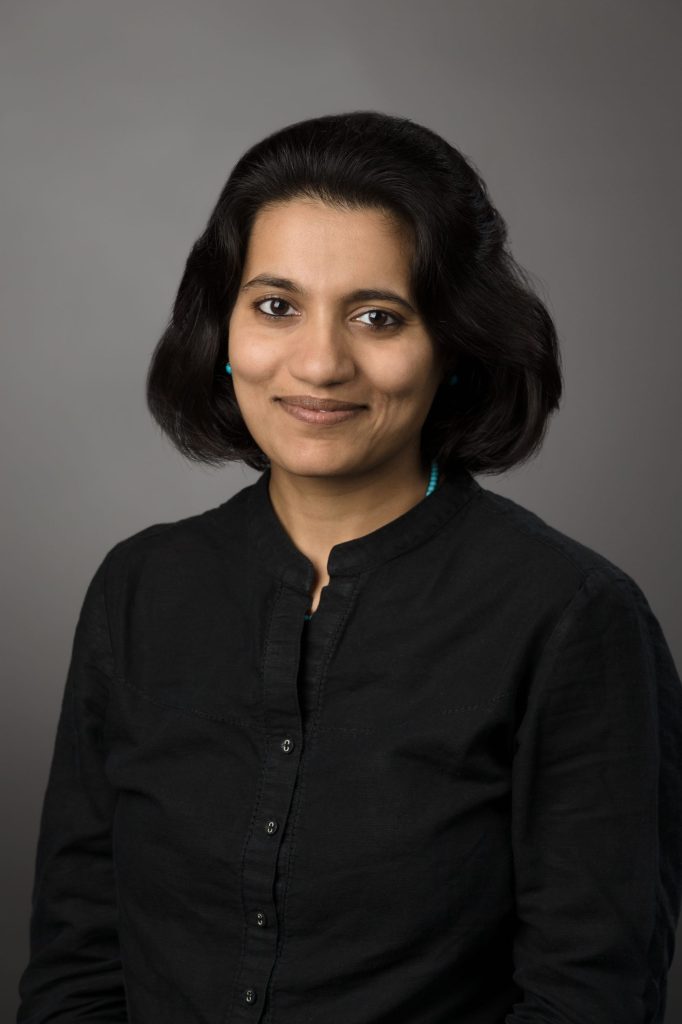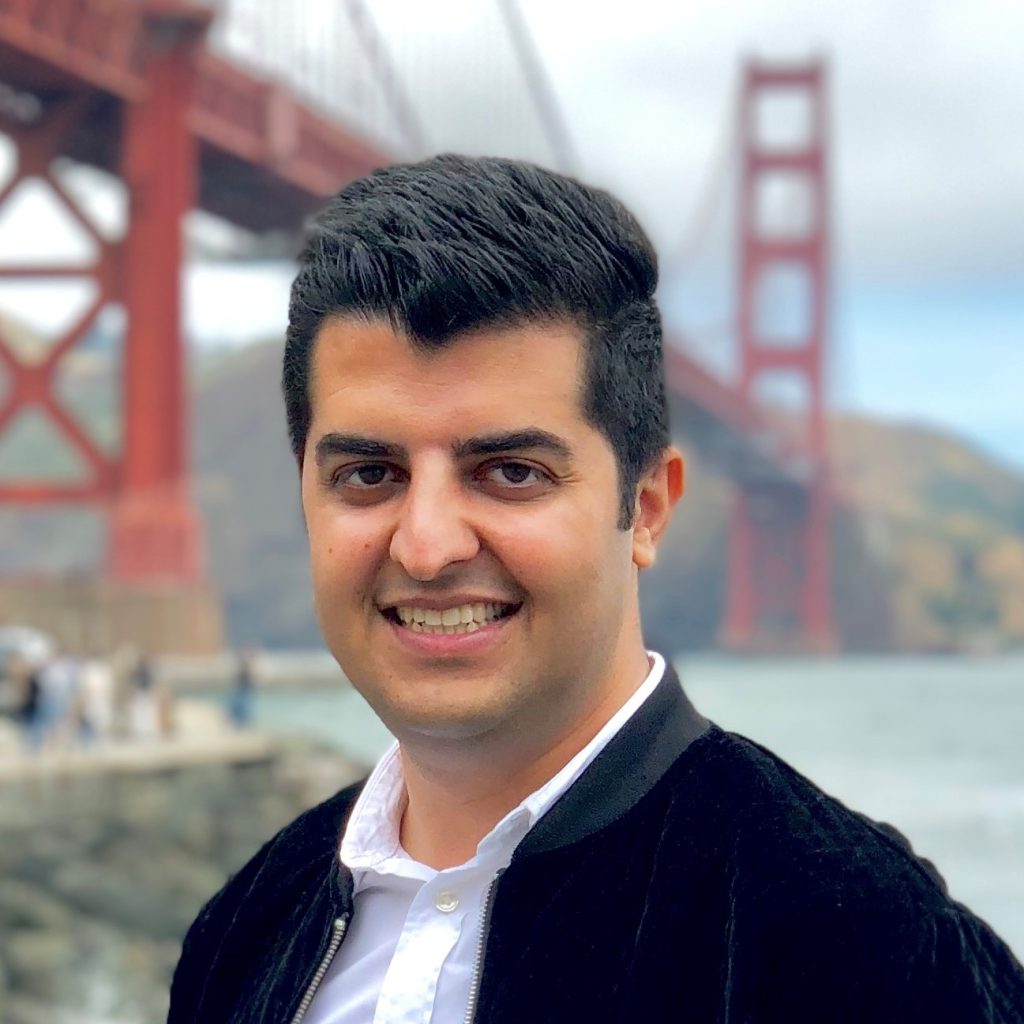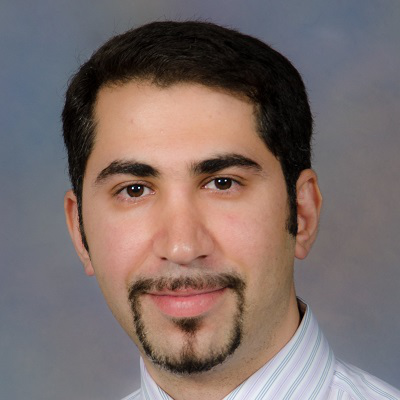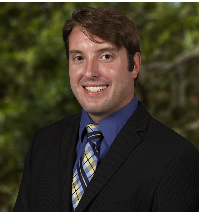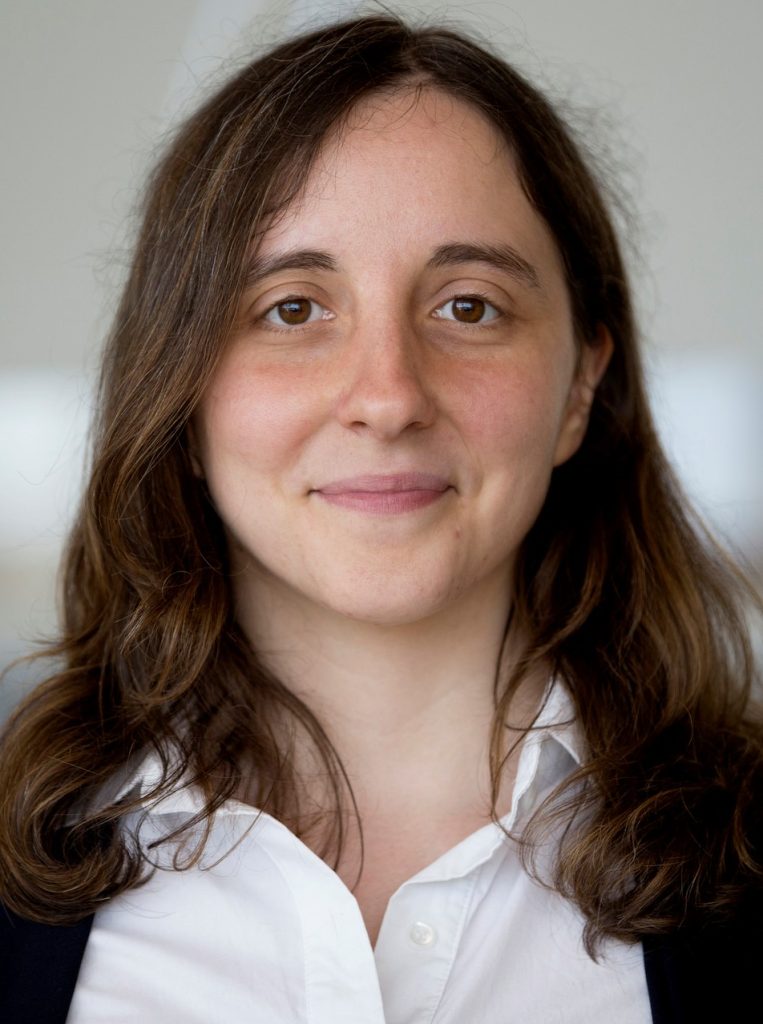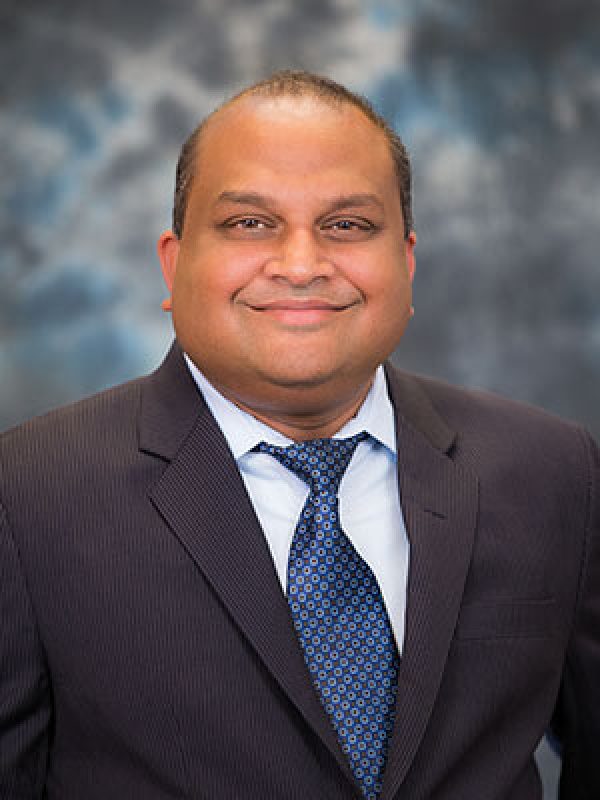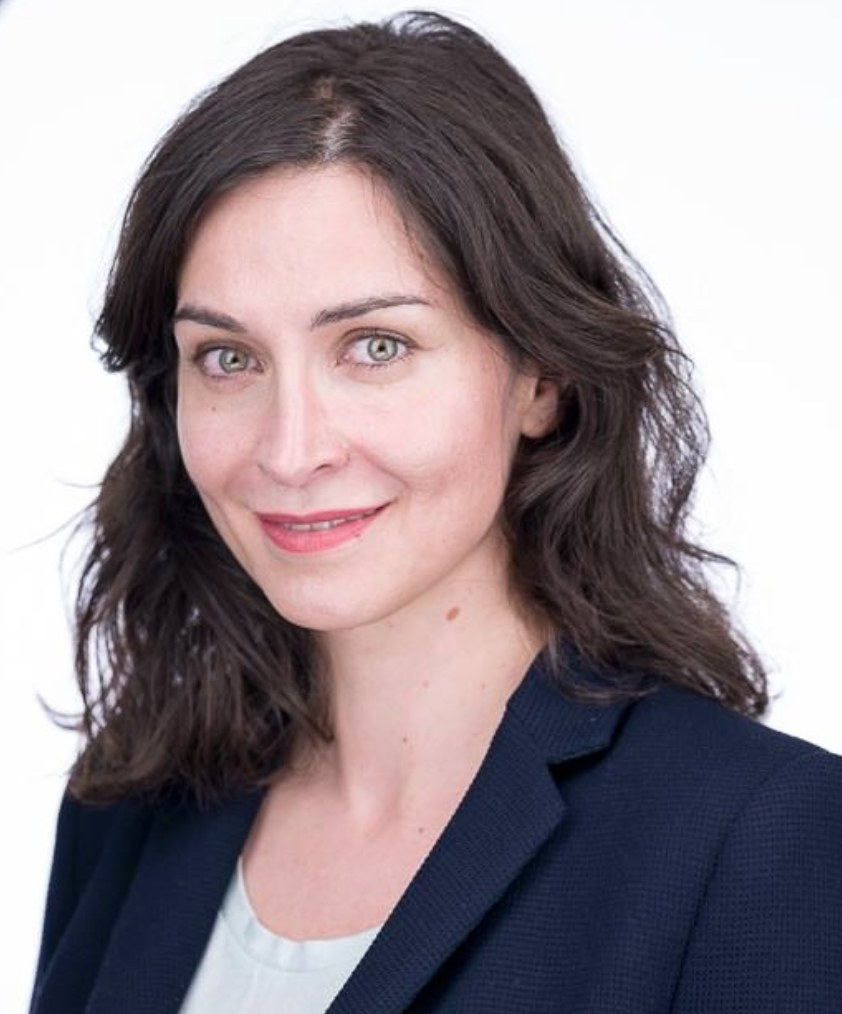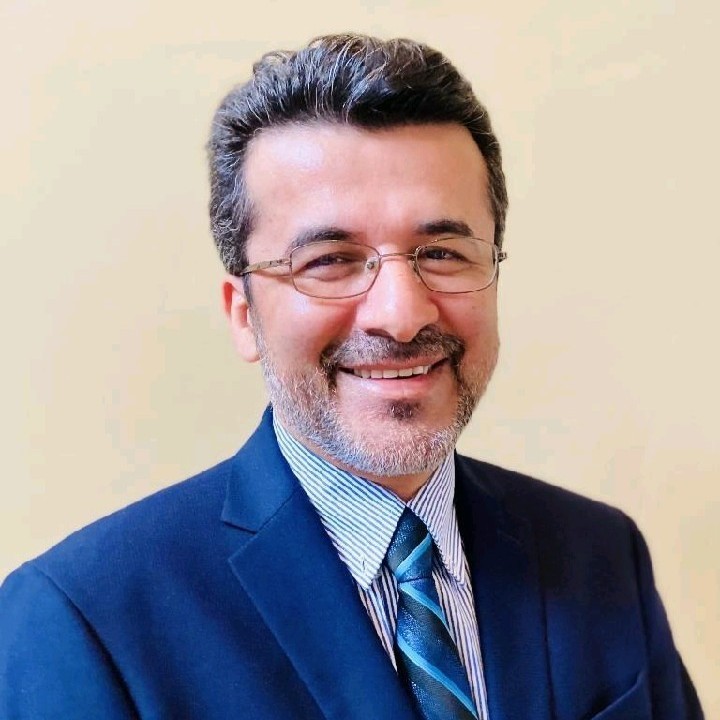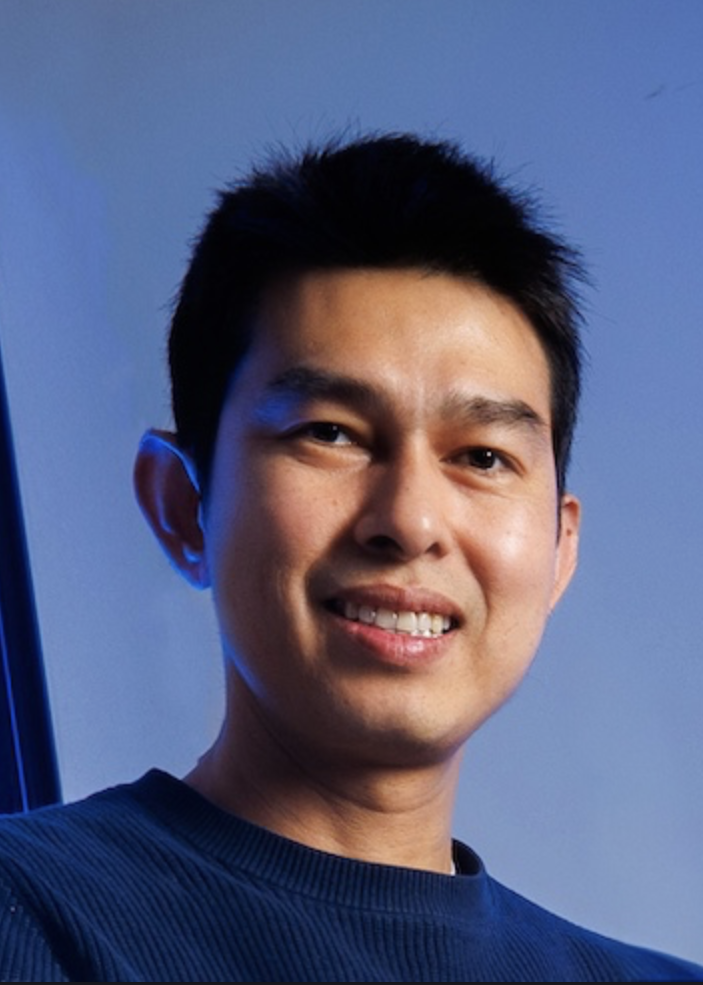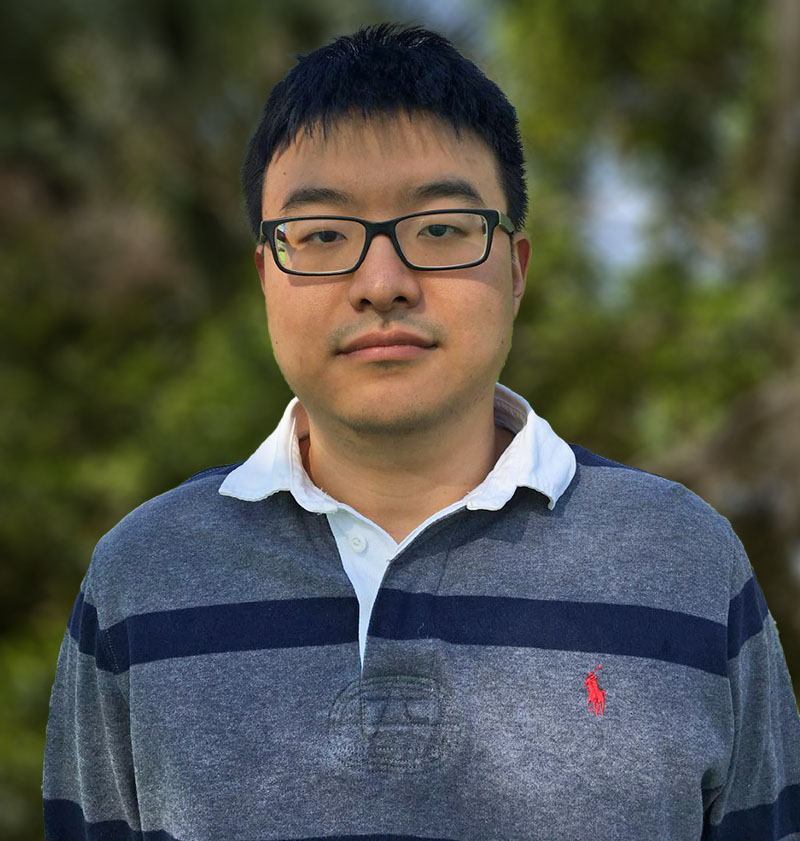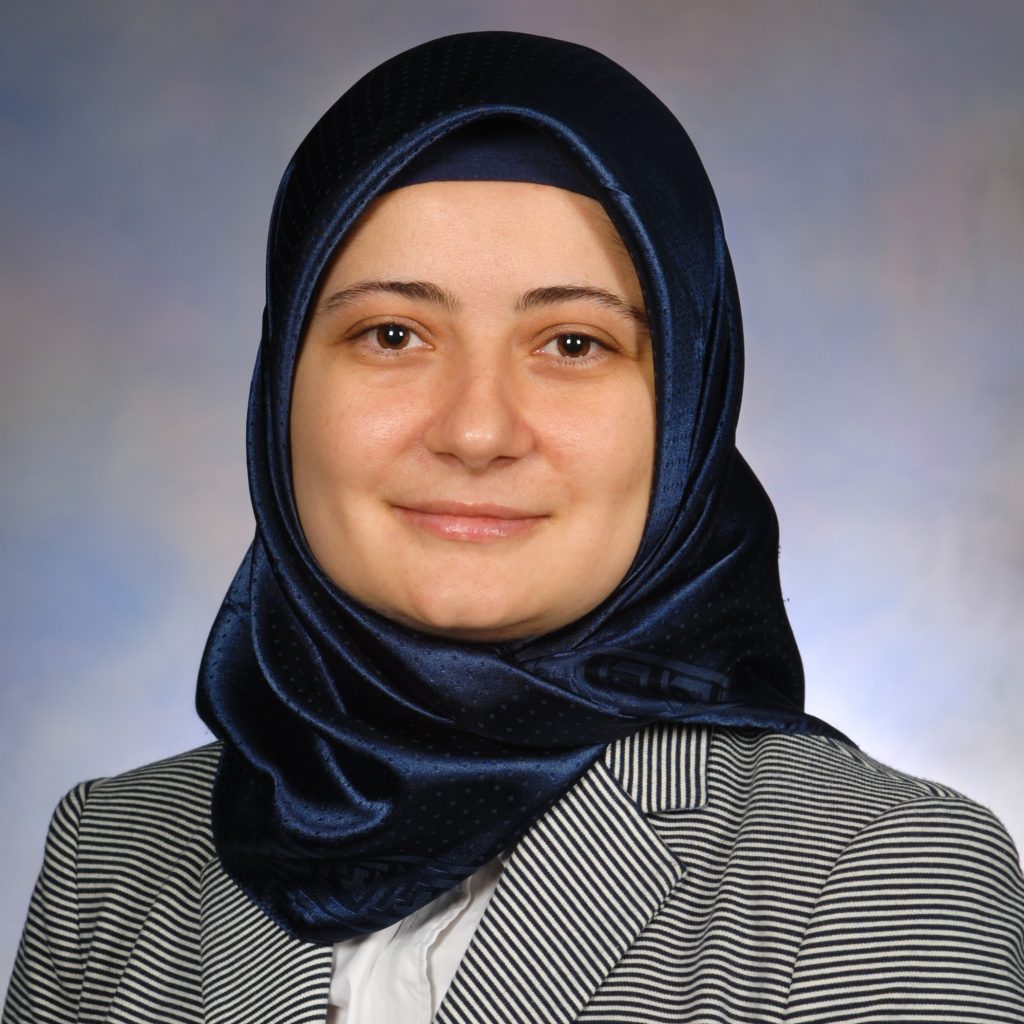Kevin Butler
FICS Research Director, UF Research Foundation Professor, Department of Computer & Information Science & Engineering department (CISE).
Research Interests
Computer Systems Security, Embedded Systems, Firmware Analysis, Mobile Security, Network Security, Adversarial Machine Learning.
Kevin Butler is a Professor in the Department of Computer and Information Science and Engineering and UF Research Foundation Professor at the University of Florida. Dr. Butler received his B.Sc. from Queen’s University, his M.S. from Columbia University, and his Ph.D. from the Pennsylvania State University. He directs the NSF Center for Privacy and Security for Marginalized and Vulnerable Populations (PRISM). He has been associate editor of four journals and acted as technical program co-chairs for numerous conferences including the 2022 USENIX Security Symposium. He has also been the conference general chair for the 2017 IEEE Symposium on Security and Privacy and the 2020 and 2021 Annual Computer Security Applications conferences. His research has been sponsored by numerous agencies and industries such as NSF, DARPA, ARO, ONR, ASOFR, Battelle, and RBC. Dr. Butler is a Senior Member of IEEE and ACM and Fellow of EAI, and received an NSF CAREER Award in 2013.
Farimah Farahmandi
FICS Research Associate Director, Wally Rhines Endowed Professor, Associate Professor, Electrical and Computer Engineering
Research Interests
CAD for Hardware Security, Formal Verification, Post-silicon Validation and Debug, High-level Synthesis Security
Farimah Farahmandi is the Wally Rhines Endowed Professor and Associate Professor in the Department of Electrical and Computer Engineering at the University of Florida. Her research has resulted in two books, seven book chapters, and several publications in premier ACM/IEEE journals and conferences. Her research has been recognized by several awards including IEEE System Validation and Debug Technology Committee Student Research Award, Gartner Group Info-Tech Scholarship, and a nomination for the Best Paper Award in ASPDAC 2017. She also has served on many technical program committees as well as organizing committees of premier ACM and IEEE conferences. Her research has been sponsored by SRC, AFRL, DARPA, and Cisco.
Navid Asadi
SCAN Lab Director-Associate Professor
Counterfeit detection and prevention, system and chip level reverse engineering, anti-reverse engineering, nano-imaging
Dr. Navid Asadizanjani is currently an Associate Professor in the Department of Electrical and Computer Engineering at the University of Florida. He completed his Ph.D. in mechanical engineering from the University of Connecticut in the summer of 2014 and continued his research as a Post-doctoral fellow at UConn CHASE prior to this position. He investigates the novel techniques for integrated circuits counterfeit detection and prevention, System and chip level reverse engineering, Anti-reverse engineering, etc. His results have been published in several journals and conferences. He has received several awards during his Ph.D. such as ISFA best paper award and D.E. Crow innovation prize.
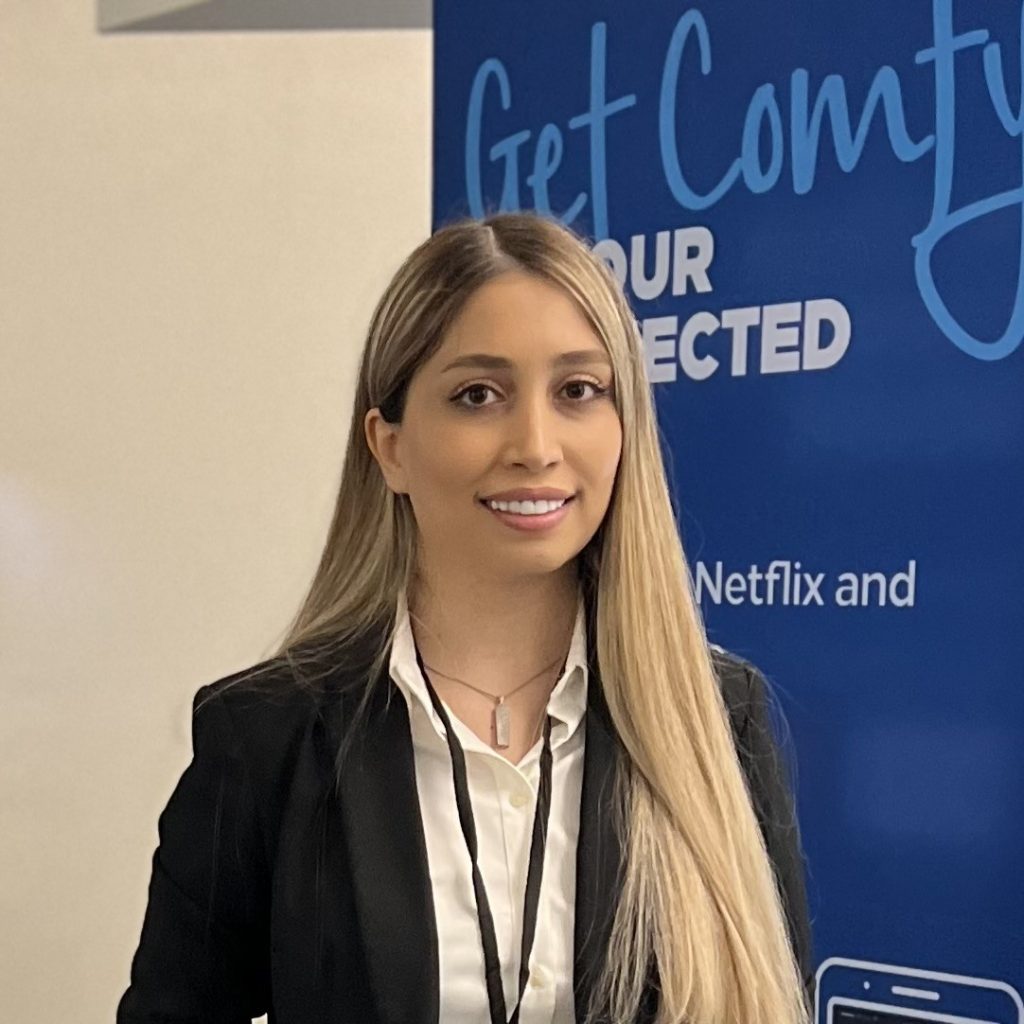
Kimia Z Azar
Research Assistant Professor
Research Interests
Hardware Security and Trust, Supply Chain Security, Sustainability and Security, and Hardware Security Validation and Verification at IP/SoC Level
Kimia Z Azar is a research assistant professor in the Department of Electrical and Computer Engineering at the University of Florida. She received a Ph.D. degree from the Department of Electrical and Computer Engineering at George Mason University in 2021. She also received her M.S. and B.S. from the Department of Electrical and Computer Engineering at Shahid Beheshti University in 2015, and K. N. T. University in 2013, respectively. Her research interests span hardware security and trust, supply chain security, System-on-Chips security validation and verification, and IoT security. She has multiple publications in high-prestigious journals and conferences including IEEE Transactions on Computers, IEEE Transactions on VLSI, IACR Transactions on Cryptographic Hardware and Embedded Systems (CHES), and Design Automation Conference (DAC), with awards including nominations for Best Paper Award in IEEE Computer Society Annual Symposium on VLSI (ISVLSI)’20, IEEE/ACM Conference on Computer-Aided-Design (ICCAD)’20, and IEEE Symposium on Hardware Oriented Security and Trust (HOST)’22.
Vincent Bindschaedler
Associate Professor
Research Interests
Security and Privacy, Data Privacy, Applied Cryptography, Adversarial Machine Learning
Vincent Bindschaedler is an Associate Professor in the Department of Computer & Information Science & Engineering at the University of Florida. He earned his PhD in Computer Science at the University of Illinois at Urbana-Champaign in 2018. His research interests include data privacy, applied cryptography, and the intersection of machine learning with security and privacy.
Zoleikha Biron
Assistant Professor
Research Interests
Security and control of Cyber Physical Systems, Intelligent Transportation System, Control theory, Diagnosis, Energy management
Dr. Biron is currently an assistant professor in the Electrical and Computer Engineering (ECE) Department at the University of Florida. Her research focuses on cyber physical systems with applications in intelligent transportation systems, smart power systems and integration of renewable energy sources with smart power systems. She is interested in utilizing control theory, estimation and fault diagnostics techniques to enhance the security and efficiency of cyber physical systems. She received her Ph.D. at Clemson University in 2017, her MS and BS degree in Electrical Engineering from K.N. Toosi University of Technology and University of Tehran, respectively. Prior joining University of Florida in Jan 2019, she spent 18 months at Clemson University international center of automotive research (CU_ICAR) as a post doc.
Christophe Bobda
Professor
Research Interests
Embedded Vision, Embedded Systems, Reconfigurable Computing, Computer Architecture, Cybersecurity, System-Level Design
Professor Bobda received the Licence in mathematics from the University of Yaounde, Cameroon, in 1992, the diploma of computer science and the Ph.D. degree (with honors) in computer science from the University of Paderborn in Germany in 1999 and 2003 (In the chair of Prof. Franz J. Rammig) respectively. In June 2003 he joined the department of computer science at the University of Erlangen-Nuremberg in Germany as Post doc, under the direction of Prof Jürgen Teich. Dr. Bobda received the best dissertation award 2003 from the University of Paderborn for his work on synthesis of reconfigurable systems using temporal partitioning and temporal placement. In 2005 Dr. Bobda was appointed assistant professor at the University of Kaiserslautern. There he set the chair for Self-Organizing Embedded Systems that he led until October 2007. From 2007 to 2010 Dr. Bobda was Professor at the University of Potsdam and leader of The working Group Computer Engineering.
Baibhab Chatterjee
Assistant Professor
Research Interests
Energy-Efficient and secure analog/RF/mixed-signal circuits and systems for biomedical and IoT applications; time-domain sensing and sensor interfaces, human body communication, brain-channel communication for untethered neural implants, physical-layer security, low-power wireless and wireline techniques.
Baibhab received their Ph.D. degree in 2022 from the Electrical and Computer Engineering Department, at Purdue University, where he worked on energy-efficient sensing and communication techniques. His industry experience includes two years as a digital design engineer/senior digital design engineer at Intel and one year as a R&D Engineer at Tejas Networks, India. He is the recipient of the Andrews and Bilsland Fellowships at Purdue University, along with multiple best paper awards including CICC 2019, CICC 2021, HOST 2018 and HOST 2019. He is a member of the IEEE, and has served as a primary reviewer for IEEE/ACM journals including JSSC, TCAS-I, TBIOCAS, TVLSI, IOT-J, TDSC, SSCL, TCAS-II, MWCL, IEEE ACCESS, TMC and JETC, and IEEE conferences including ISCAS, VLSID and EMBC. He is currently an associate editor in the RFID section and a guest editor in the Antennas Array section for the Frontiers in Antennas and Propagation.
Bonnie Dorr
Professor
Research Interests
Artificial Intelligence, CyberNLP (at the cross-section of cyber security and natural language processing)., Human-Centered Computing, Multilingual Processing, Social Computing, Natural Language Processing.
Professor Dorr joined the Department of Computer and Information Science and Engineering at the University of Florida in 2022 where she directs the Natural Language Research (NLP) Group. Her research focuses on deep language understanding, semantics, language processing using linguistically informed machine learning models, large-scale multilingual processing, explainable artificial intelligence (AI), social computing, and detection of underlying mental states. Her recent contributions have fallen squarely in the realm of cyber-NLP, for example, responding to social engineering attacks and detecting indicators of influence. She has an affiliate appointment at the Institute for Human and Machine Cognition, is Professor Emerita at the University of Maryland, former program manager at the Defense Advanced Research Projects Agency (DARPA), and former president of the Association for Computational Linguistics. She is a Sloan Fellow, NSF Presidential Faculty (PECASE) Fellow, AAAI Fellow, ACL Fellow, and ACM Fellow. In 2020 she was named by DARPA to the Information Science and Technology (ISAT) Study Group. She holds a Master’s and a Ph.D. in computer science from the Massachusetts Institute of Technology, with a Bachelor’s degree in computer science from Boston University.
Natalie C. Ebner
Professor
Research Interests
Usable Security, Social Engineering
Dr. Natalie Ebner is a Professor in the Department of Psychology in the College of Liberal Arts and Sciences at the University of Florida. She holds an adjunct faculty position in the Department of Aging & Geriatric Research in the College of Medicine at UF and is also affiliated with the Institute on Aging and the McKnight Brain Institute on campus. She is currently working on human factors on security and usable security, Her research interests include defending Internet users against social engineering and cueing developers about security blind spots in APIs. Dr. Ebner is a University of Florida Term Professor (2016-2019).
Domenic Forte
Professor
Research Interests
Hardware Security, Hardware Trojan Detection and Prevention, Security of the Electronics Supply Chain, Reverse Engineering, and Anti-Reverse Engineering.
Domenic Forte is a Professor in the Department of Electrical and Computer Engineering. He received a Ph.D. in Electrical and Computer Engineering from the University of Maryland in 2013. Before coming to the University of Florida, Dr. Forte was an assistant professor in the Electrical and Computer Engineering (ECE) Department a the University of Connecticut. He is a co-author of the book “Counterfeit Integrated Circuits- Detection an Avoidance.” Dr. Forte received the Presidential Early Career Award for Scientists and Engineers (PECASE) in 2019, an NSF CAREER award in 2017, and an ARO Young Investigator Award in 2016.
Juan E. Gilbert
Distinguished Professor, Andrew Banks Family Preeminence Endowed Professor
Research Interests
Hardware Security, Hardware Trojan Detection and Prevention, Security of the Electronics Supply Chain, Reverse Engineering, and Anti-Reverse Engineering.
Dr. Juan E. Gilbert is the Andrew Banks Family Preeminence Endowed Professor and Distinguished Professor in the Computer & Information Science & Engineering Department at the University of Florida, where he leads the Human Experience Research Lab (HXRL). His research focuses on Human-Centered Computing (HCC) which integrates people, technology, information, policy, culture and more to address societal issues. The goal of his research is to design, implement and evaluate innovative solutions to real-world problems. He received his Ph.D. and M.S. in Computer Science from the University of Cincinnati and his B.S. in Systems Analysis from Miami University in Ohio. Dr. Gilbert received the National Medal of Technology and Innovation from President Biden in 2023, and is a member of the National Science Board.
Eakta Jain
Associate Professor
Research Interests: Eye tracking, Visual attention, Graphics/VR/AR/XR, Human-centered Computing, Privacy and Security for Mixed Reality
Dr. Eakta Jain is an Associate Professor of Computer and Information Science and Engineering at the University of Florida. She received her PhD and MS degrees in Robotics from Carnegie Mellon University and her B.Tech. degree in Electrical Engineering from IIT Kanpur. She has industry experience at Texas Instruments R&D labs, Disney Research Pittsburgh, and the Walt Disney Animation Studios. Dr. Jain is interested in the safety, privacy and security of data gathered for user modeling, particularly eye tracking data. Her areas of work include graphics and virtual reality, generation of avatars, human factors in the future of work and transportation. Her research has been nominated for multiple best paper awards and been funded through faculty research awards from Meta and Google, federal funding from the National Science Foundation, National Institute of Mental Health, US Department of Transportation, and state funding from the Florida Department of Transportation. Dr. Jain served as the Technical Program Chair for ACM Symposium on Eye Tracking Research (2020) and Applications and ACM/Eurographics Symposium on Applied Perception (2021). She currently leads the human factors sub-group at the University of Florida Transportation Institute and is a SIGGRAPH EC Director (2022-2025).
Hadi M Kamali
Research Assistant Professor
Research Interests
Hardware Security, Security of the Electronics Supply Chain, IC Anti-Piracy and Anti-Reverse Engineering.
Hadi M Kamali is a research assistant professor in the the Department of Electrical and Computer Engineering at University of Florida. He received his Ph.D. degree from the Department of Electrical and Computer Engineering (ECE) at George Mason University, 2021. His research delves into hardware security with a particular focus on exploiting IP protection techniques, design-for-trust for VLSI circuits, and CAD frameworks for security (design-for-security), in which he has numerous publications in top journals and conferences including IEEE Transactions on Computers, IEEE Transactions on VLSI, IACR Transactions on Cryptographic Hardware and Embedded Systems (CHES), and Design Automation Conference (DAC), with awards including nominations/wining of Best Paper Award in ICCAD’19, ISVLSI’20, ICCAD’20, IEEE CAS 2020, and IEEE HOST 2022.
Yuanyuan Lei
Assistant Professor
Research Interests
Large Language Models, Natural Language Processing, Artificial Intelligence, Multi-Modality Learning, Information Security
Dr. Yuanyuan Lei is an Assistant Professor in the Department of Computer & Information Science and Engineering at the University of Florida. Her research focuses on Large Language Models (LLMs), Natural Language Processing, Artificial Intelligence, and Information Security. Specifically, her work centers on:
(1) LLM-based safety issues, including designing machine learning algorithms to mitigate hallucinations, reduce harmful or deepfake content, prevent misuse, and enhance safety alignment;
(2) information security, by developing AI models to detect and mitigate untruthful text;
(3) advancing LLM capabilities in complex logical reasoning and strategic planning.
Her research has been published in top-tier venues, including ACL, EMNLP, NAACL, and ACM/IEEE journals.
Nima Maghari
Associate Professor
Research Interests
Analog/Mixed-Signal IC Security, System-level and Circuit-level Trojan detection, Supply chain assurance through circuits, security for embedded systems
Nima Maghari is an Associate Professor in the Department of Electrical and Computer Engineering at the University of Florida. His area of research is analog/mixed-signal IC design ranging from high-performance e analog-to-digital converters (ADC), digital-to-analog converter (DAC), phase-locked-loops (PLL), low power regulators (LDOs) to Physical Unclonable functions (PUFs), innovative circuits for counterfeit protection and camouflage, system level verification through circuit behavior among many others. He is a Senior Member of IEEE, Associate Editor of IEEE Solid-State Circuit Letters and has served as Data Converter Subcommittee chair at IEEE Custom-Integrated Circuits Conference (CICC) for past 4 years. His research has been sponsored by NSF, Qualcomm, Texas Instruments, SRC, KCP and Cisco.
Prabhat Mishra
Professor
Research Interests
Hardware Security and Trust, Embedded and Cyber-Physical Systems, Energy-aware Computing, System-on-Chip Security Validation, Formal Verification, Post-Silicon Debug
Prabhat Mishra is a UF Research Foundation Professor and Professor in the Department of Computer and Information Science and Engineering at the University of Florida. He received his Ph.D. in Computer Science and Engineering from the University of California at Irvine in 2004. His research has been recognized by several awards including the NSF CAREER Award, IBM Faculty Award, three Best Paper Awards, and EDAA Outstanding Dissertation Award. Prof. Mishra is an ACM Distinguished Scientist and a Senior Member of IEEE.

John Oakley
Professor of Practice
Research Interests
With more than 20 years of experience in mixed-signal architecture, John has held key roles at Intel, Motorola, Freescale, and Fujitsu. He holds 12 patents and has delivered 55+ integrated devices, many deployed at scale. His expertise includes modem and transceiver systems for cellular platforms and extensive involvement in 3GPP standards. As Vice Chair of the MIPI RFFE Working Group and an active contributor to RIO and TSG, he has played a significant role in defining global mobile interface protocols. John is also a frequent speaker at major technical conferences, including ECTC, ECS, SELSE, MDTS, NSF, and others. He is an alumnus of Texas A&M University.
Christopher “Chrispy” Petersen
Assistant Professor
Research Interests
Exploring and exploiting spacecraft dynamics, Advanced guidance, navigation, control and autonomy (GNCA), Real-time computationally aware optimization for spacecraft, Space cyber resilience and Immersive human-satellite interfaces.
Dr. Christopher “Chrispy” Petersen is an Assistant Professor at the University of Florida in the Mechanical & Aerospace Engineering Department as of Fall 2022. He leads the Spacecraft Technology And Research (STAR) Laboratory, which is focused on 5 pillars of research; 1) Exploring & exploiting spacecraft dynamics 2) Advanced guidance, navigation, control, and autonomy (GNCA), 3) Real-time, computationally aware optimization for spacecraft and 4) Space cyber resilience and 5) Immersive human-satellite interfaces. While he enjoys everything space, his group’s research focuses primarily in the domains of rendezvous, proximity operations, and docking (RPOD) and eXtra GEOstationary (XGEO, which is above Geostationary orbit, to the Moon, and beyond). Before that, he was at the Space Vehicles Directorate of the U.S. Air Force Research Laboratory (AFRL/RV) located at Kirtland Air Force Base in New Mexico. He received his B.S. from Syracuse University in Aerospace Engineering in 2012, and his M.S. and Ph.D. from the University of Michigan in 2016 in Spacecraft Dynamics & Control. While at AFRL he worked on 10+ satellite experiments, developing, deploying, and executing GNCA algorithms for ground and on-orbit use. As a highlight, Dr. Petersen was the PI for advanced autonomous guidance algorithms used by the Mycroft flight experiment which has been recognized as “…the AF’s biggest game changer” for space warfighters. He also served as Deputy Program Manager of the Autonomous Demonstrations and Orbital eXperiments (ADOX) Portfolio, which is a series of satellite demonstrations focused on autonomy technologies to enable satellite inspection, XGEO space domain awareness and logistics in GEO including advanced propulsion and refueling. For his accomplishments, in 2021 he was awarded the AFRL Early Career Award.
Sara Rampazzi
Assistant Professor
Research Interests
Cyber-physical System Security, Sensor Security, Embedded System, Interdisciplinary Cyber Security & Privacy
Dr. Sara Rampazzi is an assistant professor in the Department of Computer and Information Science and Engineering at the University of Florida. Dr. Rampazzi’s research areas include cyber-physical systems security, embedded systems design, modeling, and simulation techniques with applications in Healthcare, Automotive, and the Internet of Things. Dr. Rampazzi’s work focuses on investigating security risks and developing hardware and software defense strategies against hardware-based attacks. Her research has been published in several journals and conferences and has been covered by several media outlets. Dr. Rampazzi has received the Medtronic Outstanding Research Contributor Recognition in 2020 and her research on secure sensor technology for N95 masks decontamination processes has been sponsored by NSF.
Sandip Ray
Professor
Research Interests
SoC and platform security; IoT and automotive robustness; Functional Safety; Domain-Specific System Architecture; Post-Silicon Validation; Formal Methods
Sandip Ray is a Professor at the Department of Electrical and Computer Engineering, University of Florida. His research involves developing trustworthy, secure, reliable computing devices and systems through a combination of architecture, synthesis, and validation technologies. Before joining University of Florida, Dr. Ray worked for several years in various capacities in industrial research labs and R&D organizations, leading research on various topics including automotive safety and security, System-on-Chip (SoC) security architecture and validation for mobile and IoT devices, post-silicon validation, and formal methods.
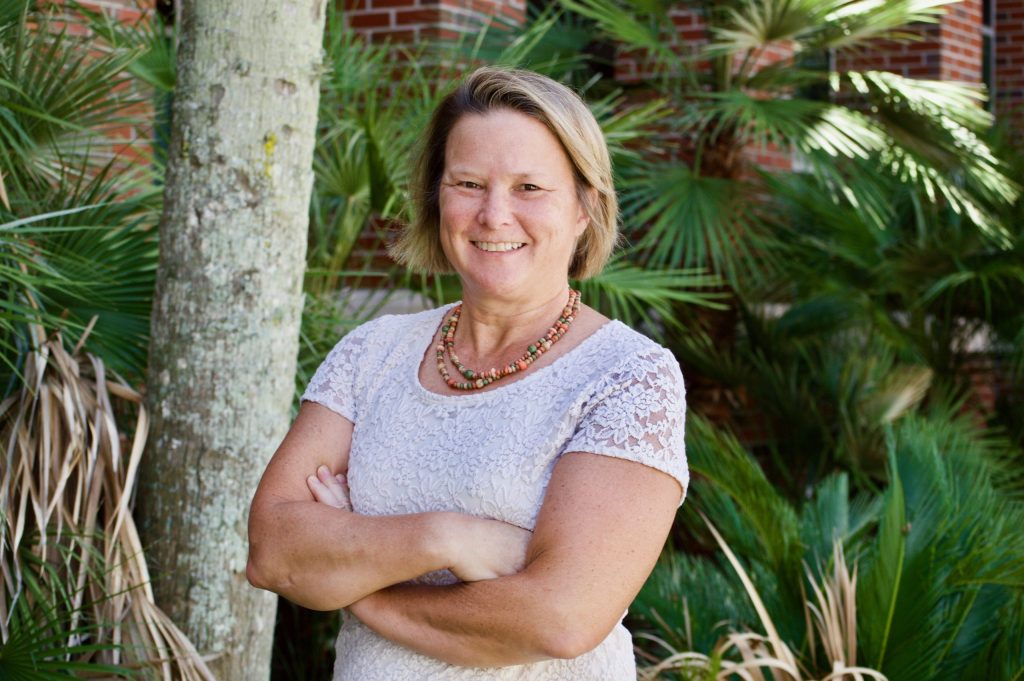
Cheryl Resch
Assistant Instructional Professor
Research Interests
Cybersecurity education, Cybersecurity in Undergraduate Curriculum
Cheryl Resch is an Assistant Instructional Professor in the Engineering Education Department at the University of Florida. She teaches core Computer Science and cybersecurity courses.
Before joining the University of Florida, Ms. Resch spent 29 years at the Johns Hopkins University Applied Physics Laboratory. For the last 15 years, Ms. Resch worked in Information Assurance and Cybersecurity, on secure computing and cybersecurity architecture for the DoD and DHS.
Sonja Schmer-Galunder
Professor of Practice
Research Interests
Sonja is the Glenn and Deborah Renwick Leadership Professor in AI and Ethics at the Herbert Wertheim College of Engineering. Prior to joining UF she was the Principal Investigator on several multi-million-dollar DARPA-funded research projects that combine social science with AI development to better address long-term social and cultural impacts of AI. She was the PI of DARPA Understanding Group Bias, DARPA SBIRs TYBALT and MEDULLA OBLONGATA as well as the PI on DARPA Civil Sanctuary and co-PI on DARPA HABITUS.
Her research is concerned with cultural and social aspects of language and AI systems, such as gender bias, polarization, misinformation, moderation of hate speech and prosocial discourse. A key area of interest lies in socio-technical research and developing of AI systems that are trustworthy, safe, and in aligned with human values, paying special attention to marginalized and vulnerable groups. Drawing on her background in social anthropology, her work is often focused on understanding and mitigating the impacts of AI on women, people of color, and non-Western cultures.
Tom Shrimpton
Professor
Research Interests
Cryptography, with an emphasis on the theory and practice of hash functions, Authenticated Encryption, and other symmetric-key primitives.
Tom Shrimpton is a Professor in the Department of Computer & Information Science & Engineering at the University of Florida. Recently, he has worked more broadly in applied cryptography. In 2009, Dr. Shrimpton was the recipient of a National Science Foundation CAREER award.
Catia S Silva
Instructional Associate Professor
Research Interests
Machine learning, signal processing, computational neuroscience, natural language processing, cybersecurity
Catia Silva is an Instructional Associate Professor in the Department of Electrical and Computer Engineering at the University of Florida. Dr. Silva earned her Ph.D. and M.S. in Electrical and Computer Engineering from the University of Florida in 2018 and 2016, respectively, a M.S. in Biomedical Engineering from the University of Porto in 2012, and a B.S. in Applied Mathematics from the University of Porto in 2010. Dr. Silva’s research interests include machine learning, signal processing, natural language processing, cybersecurity, and computational neuroscience
Stacey Steinberg
Master Legal Skill Professor
Research Interests
Child abuse and neglect, juvenile justice, children’s online privacy, and children’s online safety.
Stacey Steinberg is the supervising attorney for the Gator Team Child Juvenile Law Clinic. She also serves as Director for the Program on Children and Families. Professor Steinberg’s research explores the intersection of a parent’s right to share online and a child’s interest in privacy. She is an internationally sought after expert on children’s privacy and sharenting. Professor Steinberg’s work has been cited by countless news and research organizations, including NPR, the New York Times, the Washington Post, CNN, and the children’s rights arm of the United Nations, UNICEF. She has presented her children’s privacy/sharenting research to a variety of audiences, including to the American Academy of Pediatrics, the Association of American Law Schools, the University of Geneva, the Swiss Institute of Comparative Law, and events affiliated with the United Nations Convention on the Rights of the Child. Professor Steinberg is the author of Growing Up Shared: How Parents Can Share Smarter on Social Media and What You Can Do to Keep Your Family Safe in a No-Privacy World.
Prior to joining the law faculty, Professor Steinberg served as a felony prosecutor handling crimes involving child abuse, child pornography, domestic violence, and rape. She has served as lead counsel in hundreds of contested hearings. As a practitioner, Steinberg routinely provided training to lawyers, police officers, and social workers on matters relating to child abuse, neglect, and trial procedure. Professor Steinberg has also worked as a Senior Attorney for Children’s Legal Services.
Mark Tehranipoor
Distinguished Professor, Chair of the Department of Electrical and Computer Engineering
Research Interests
Hardware Security and Trust, Electronics Supply Chain Security, Counterfeit IC Detection and Prevention, and Reliable Circuits and Systems Design.
Mark M. Tehranipoor is currently a Distinguished Professor in Cybersecurity at the University of Florida. Prior to joining University of Florida, Dr. Tehranipoor served as the founding director of the Center for Hardware Assurance, Security, and Engineering (CHASE) and the Comcast Center of Excellence in Security Innovation (CSI) at the University of Connecticut. He also co-founded a new IEEE International Symposium on Hardware-Oriente Security and Trust (HOST) and the Trust-HUB forum.
Dung Tran
Research Interests
Deep Neural Networks, Cyber-Physical Systems, Safe Human-Robot-Collaboration, autonomous driving and aerial vehicles.
Dr. Dung Tran is an Assistant Professor in the Department of Computer and Information Science and Engineering (CISE) at the University of Florida. He is the director of the Verification and Validation for Learning-enabled Autonomy Laboratory (V2LA). He earned a Ph.D. degree in Computer Science at Vanderbilt University in August 2020. His research interests are specification and modeling languages, formal verification, monitoring, safe control, planning, and learning for autonomous cyber-physical systems (CPS), focusing on in-road and off-road autonomous driving, aerial vehicles, human-robot-interaction in construction. His group develops both software and hardware prototypes for their research. Dr. Tran has been developing the NNV (Neural Network Verification) framework for Deep Neural Networks and Learning-enabled CPS. The NNV tool is gaining great attention from industry and academia. It is used in Northrop Grumman for the DARPA Assured Autonomy project and is currently partially supported by Toyota Research. His work on verification of learning-enabled CPS has won the prestigious IEEE TCCPS outstanding dissertation award 2021. He receives NSF CAREER Award in 2025 and the prestigious SIU Prize Gold Medal for young Vietnamese research in Computer Science worldwide in 2025.
Patrick Traynor
Professor and Interim Chair, Computer and Information Science and Engineering, John and Mary Lou Dasburg Preeminent Chair in Engineering
Research Interests
Security of Mobile Systems with a concentration on Telecommunications Infrastructure and Mobile Devices, Internet security, Applied Cryptography.
Patrick Traynor is the Interim Chair and Professor in the Department of Computer and Information Science and Engineering (CISE) and the John and Mary Lou Dasburg Preeminent Chair in Engineering at the University of Florida. Dr. Traynor earned his Ph.D. and M.S. in Computer Science and Engineering from Pennsylvania State University in 2008 and 2004, respectively, and his B.S. in Computer Science from the University of Richmond in 2002. After promotion and tenure in the School of Computer Science at Georgia Tech, he joined the University of Florida in 2014 as part of the UF Rising Preeminence Hiring Program.
Yu Wang
Assistant Professor
Research Interests
Formal Methods, Machine Learning, Cyber-Physical Security, Assured Autonomy, Differential Privacy
Yu Wang serves as an Assistant Professor in the Department of Mechanical and Aerospace Engineering. Prior to this, he held a Postdoctoral Researcher position in the Department of Electrical and Computer Engineering at Duke University. Dr. Wang earned his Ph.D. in Mechanical Engineering and his M.S. in Statistics and Mathematics from the University of Illinois at Urbana-Champaign (UIUC). His primary research focus lies in the theoretical and algorithmic foundations of automated system design, with a specific emphasis on security and privacy.
Joseph N. Wilson
Emeritus Associate Professor
Research Interests
Programming Languages, Machine Learning, Cyber Security
Joseph N. Wilson is an Emeritus Associate Professor in the Department of Computer and Information Science and Engineering. His primary goal is to help our next generation of graduates avoid designing and writing malware-ready programs. He i the holder of the GPEN (Penetration Tester), GXPN (Exploit Research and Advanced Penetration Tester), an GWAPT (Web Application Penetration Tester) GIAC Certifications.
Tuba Yavuz
Associate Professor
Research Interests
Formal Methods, Software Analysis, Systems Security, IoT Security
Tuba Yavuz is an Associate Professor of Electrical and Computer Engineering at the University of Florida. She has received her Ph.D. in Computer Science from the University of California, Santa Barbara in 2004. Her research is in the intersection of formal methods, software engineering, and systems security. She has developed techniques and tools to formally verify infinite-state systems (ALV), to detect concurrency bugs in Java programs (JRF and CHIMP), and to perform model extraction for firmware (FirmUSB, ProXray) and device drivers (MOXCAFE). She is also interested in IoT security and privacy.
Postdoctoral Scholars
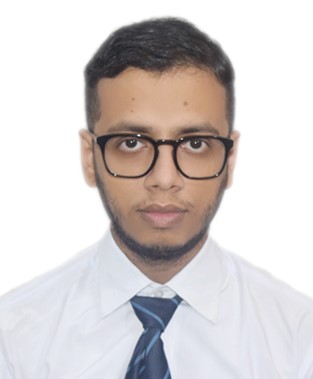
Sukanta Dey
Advised by: Mark Tehranipoor
Research Interests
Electronic Design Automation, VLSI CAD, VLSI Physical Design, Hardware Security, Artificial Intelligence and Machine Learning.
Sukanta Dey is a Postdoctoral Research Associate at the Department of Electrical and Computer Engineering (ECE), University of Florida, Gainesville, FL, US. He received his Master’s and Ph.D. from the Department of Computer Science and Engineering, IIT Guwahati in March 2021, specializing in Machine Learning techniques for Electronic Design Automation (EDA). Prior to joining IIT Guwahati, he received his Bachelor’s in Electronics and Telecommunication Engineering from Assam Engineering College in July 2014. His domain of expertise is EDA, VLSI CAD, VLSI Physical Design, and Hardware Security, Artificial Intelligence and Machine Learning. His research works have been published in reputed EDA journals/conferences, e.g., ACM TODAES journal, IEEE/ACM DATE, IEEE ISVLSI, VLSID conferences. He has served as a technical program committee member, expert reviewer, and organizing committees of premier ACM and IEEE conferences, including Design Automation Conference (DAC). He is also serving as research paper reviewer of reputed IEEE, ACM, IET, Springer journals.
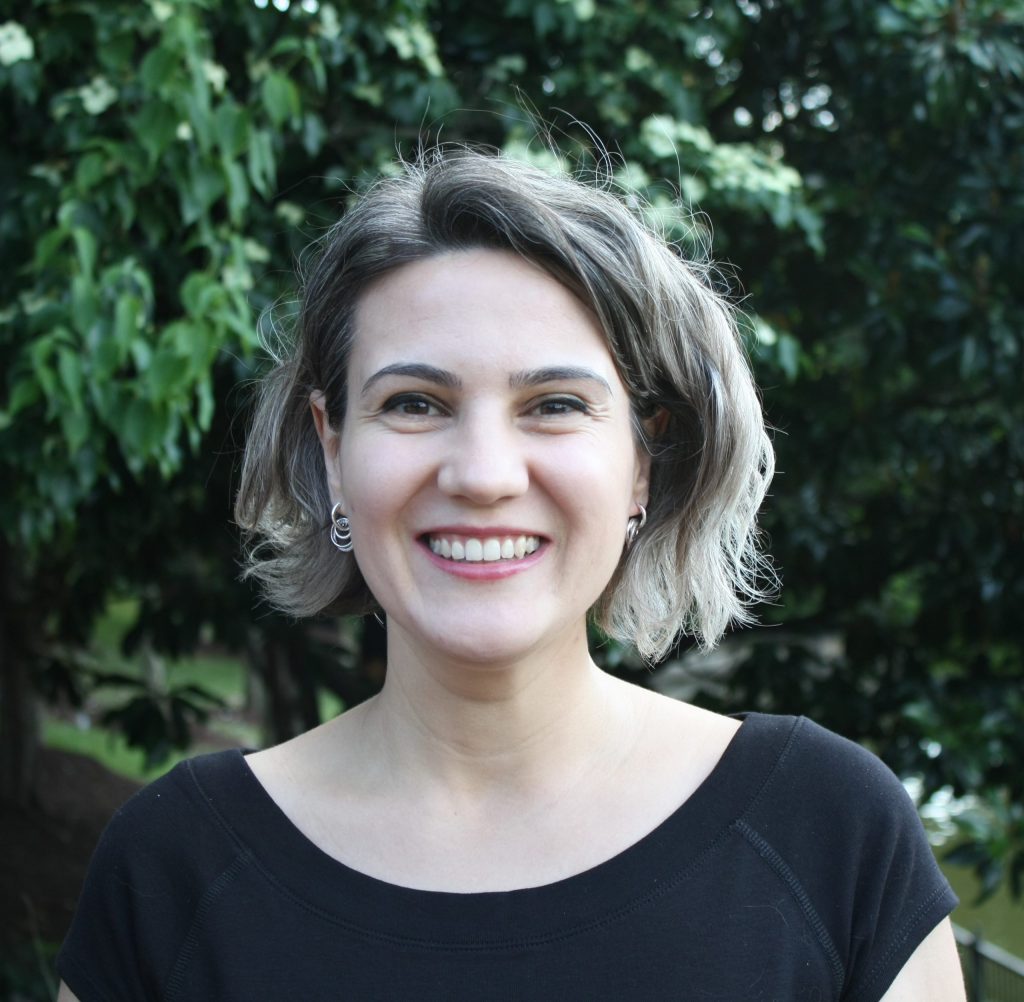
Didem Pehlivanoglu
Postdoctoral Associate
Advised by: Natalie Ebner
Research Interests
Cognitive Aging, Judgment and Decision Making, Cybersecurity, Affective Neuroscience, Deception, Misinformation, Neural Network Modeling
Didem Pehlivanoglu is a Postdoctoral Associate in the Department of Psychology at the University of Florida. She received her Ph.D. degree in Psychology with a specialization on Cognitive Aging from the Georgia Institute of Technology in 2018. Dr. Pehlivanoglu’s research seeks to uncover interindividual differences in trust-related decision making and delineate conditions under which individuals become more trusting in adulthood and aging. Specifically, her research focuses on identifying cognitive, socioemotional, and neurobiological profiles in real-life and simulated deceptive contexts across the adult lifespan. Outside of analyzing data and writing papers, Dr. Pehlivanoglu enjoys biking, cooking, and tasting different cuisines and cocktails.
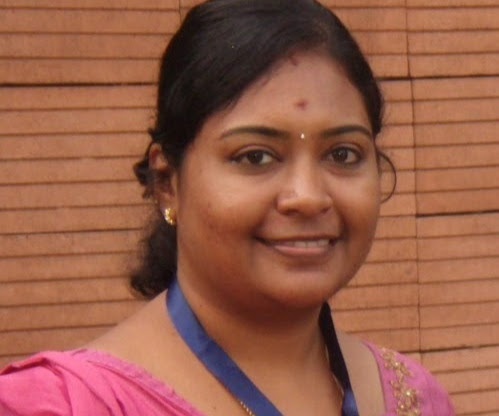
Sree Ranjani Rajendran
Advised by: Mark Tehranipoor
Research Interests
VLSI Testing; Hardware Verification; Hardware Security and Trust, with emphasis on: anti-counterfeiting, anti-Trojan, authentication, & anti-piracy solutions.
Sree Ranjani Rajendran is currently a postdoctoral associate with the Electrical and Computer Engineering Department, University of Florida, Gainesville, FL, USA. She received her Ph.D. in Electronics and Communication Engineering from Amrita Vishwa Vidyapeetham, India. She also worked as a postdoctoral fellow in the Computer Science Department, Indian Institute of Technology Madras. She had authored about 27 research articles published in refereed conference proceedings and renowned journal publications.

Sujan Kumar Saha
Advised by: Christophe Bobda
Research Interests
Embedded System Security
Sujan Kumar Saha is a Post-Doctoral Associate in the ECE Department. He got his BS degree from Bangladesh University of Engineering and Technology and his masters from the University of California, Riverside. His current projects include Embedded System security and developing tools to integrate security in SoC Design Flow. In his spare time, he likes swimming, listening to music, and watching movies.

